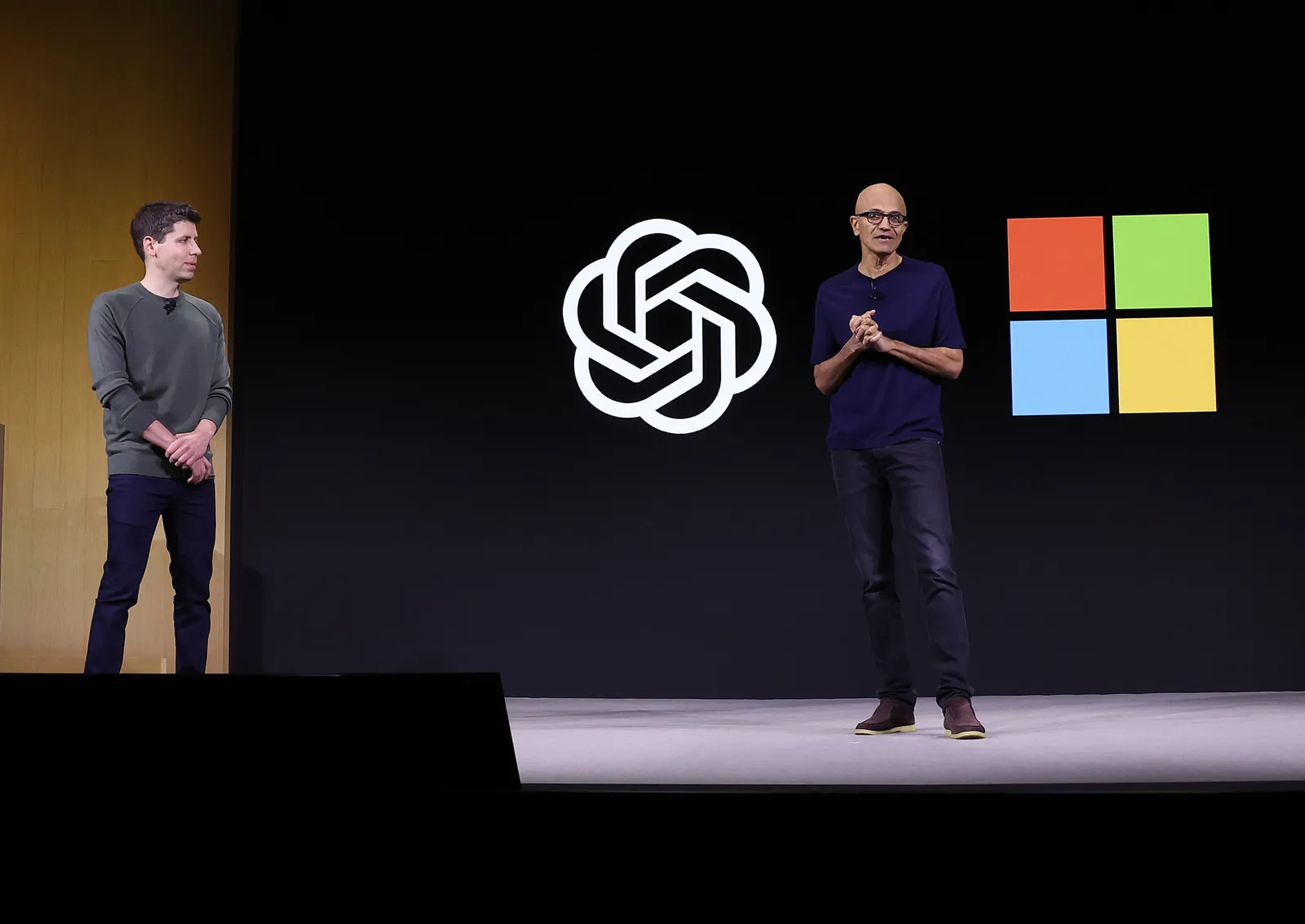

The first anniversary of ChatGPT could not have been more exciting! The tech world got a knee-jerk reaction when the board of ChatGPT’s parent company, OpenAI, suddenly dismissed the CEO, Sam Altman, during one of the board meetings. AL Circle has detailed the progress made since then in one of its news articles, available for review: ‘OpenAI without Sam Altman – The impact on technology and aluminium sector’.

PHOTOGRAPH: JUSTIN SULLIVAN/GETTY IMAGES
However, within a few days, things changed dramatically, and Sam Altman was reinstated at the helm as the CEO of OpenAI. The old board of OpenAI had been revamped, and in the new board, Microsoft, the largest shareholder of OpenAI, was given a seat. This chain of events brought stability to OpenAI, and Microsoft’s constructive involvement during this entire period has also been lauded by many. The other major shareholders of OpenAI had also been satiated by the stability and focus brought back to the company. The start-up community has also lauded this event as it has been one of those events where the entrepreneur won the battle with the board and retained the vision and creative independence, one of the rare occasions in the recent past. Finally, Sam Altman was hugely welcomed by the team back in OpenAI and was named the ‘CEO of the year 2023’ by TIME Magazine.
While this stability will help OpenAI stay focused on the problems at hand- the continuous flow of funds, the pathway to profitability, and fighting the looming battle with competitor products like Google DeepMind’s Gemini models, some people also highlighted the requirement of governance around the LLMs and the generative AI developments. It was discussed in the various forums that perhaps OpenAI had been developing an AI model capable of solving advanced mathematical problems with a significantly developed sense of logic, which had been hitherto not possible by any LLMs. Many fear that the development will gradually bring in a new era in AI-related research and, hence, the next level of threats for humankind. However, no concrete evidence exists to substantiate such findings, and the threats may be far-fetched.
What does this entire episode mean for the global aluminium industry?
According to the research of AL Circle, Digital Transformation is rapidly gaining ground in the aluminium world. From business strategy to implementation, supply chain to R&D and product specification documentation, secondary research, application coding, and practically every aspect of a modern aluminium enterprise, it can be transformed using various digital applications and software. Increasingly, global aluminium companies are hiring more and more CDOs (Chief Digital Officers), adding more fuel to the traction of digitalization. Such trends and use cases are documented in AL Circle’s report on Digital Transformation.
Given this backdrop, the aluminium industry overall is expected to gain out of the reinstatement of Altman at the helm of OpenAI due to the following reasons:
Microsoft’s seat on the OpenAI board will help the company in multiple ways. The internal governance structure of Microsoft and the growth engine will ensure faster concept development of the features of ChatGPT and subsequent avatars. This will probably make OpenAI and its future offerings sharper. Like any other consumer of ChatGPT, the aluminium industry will be able to derive more value from it.
The Generative AI industry developments will remain bipolar, primarily driven by Microsoft and Google. Both platforms will be substantially vast and have several tools developed on them, using the APIs from the original LLMs developed by these two Technology giants. This will enable more innovation for several existing and new areas and strengthen customer interaction, business planning, marketing communications, system development, etc. Like many other industries, the aluminium sector is also expected to gain significantly from these developments.
With both the prominent LLMs and Generative AI platforms having their own cloud ecosystem, building, and training the models are accessible to various organizations. This will spur more innovative applications coming to the forefront. This, in turn, will support the entrepreneurs and developers to work on these platforms, and such work will benefit the aluminium world. So, in the near future, an Aluminium company will have to spend much fewer resources (time and effort) to customize a chatbot for its customers. A model will already be available with 95% functionality, if not more.
Presently, sustainability is a global focus across the metal and mining industry, and aluminium is no exception. A more stable ecosystem of LLMs and Generative AIs will support the research and development works related to the same. The pathway to greener aluminium will be smoother, and the demand side of the same (e.g. transportation, electrical, construction, packaging, and the like) will become more and more focused on demanding greener aluminium products.
Globally, the aluminium ecosystem employs more than 1.5 million people. There are new entries to the industry, and new companies are also targeting the aluminium industry for serving with their products (e.g. Tech hardware, software, equipment, other services, utilities, etc.). Hence, the requirement to learn in the aluminium industry is also significant. Generative AI models are effective tools for driving learning in the aluminium industry, be it an induction instrument or a medium for new training areas.
Conclusion
The exponential tech industry heaved a sigh of relief with Mr Sam Altman’s return to OpenAI. This will ensure a bipolar industry platform structure, considering two prominent players, Microsoft and Google. This will facilitate more innovation and support mechanisms for the Aluminium industry in the near future. Some concerns notwithstanding, overall improvement is anticipated in the space along with more and more Aluminium companies delving deeper into the AI journey.
Responses








